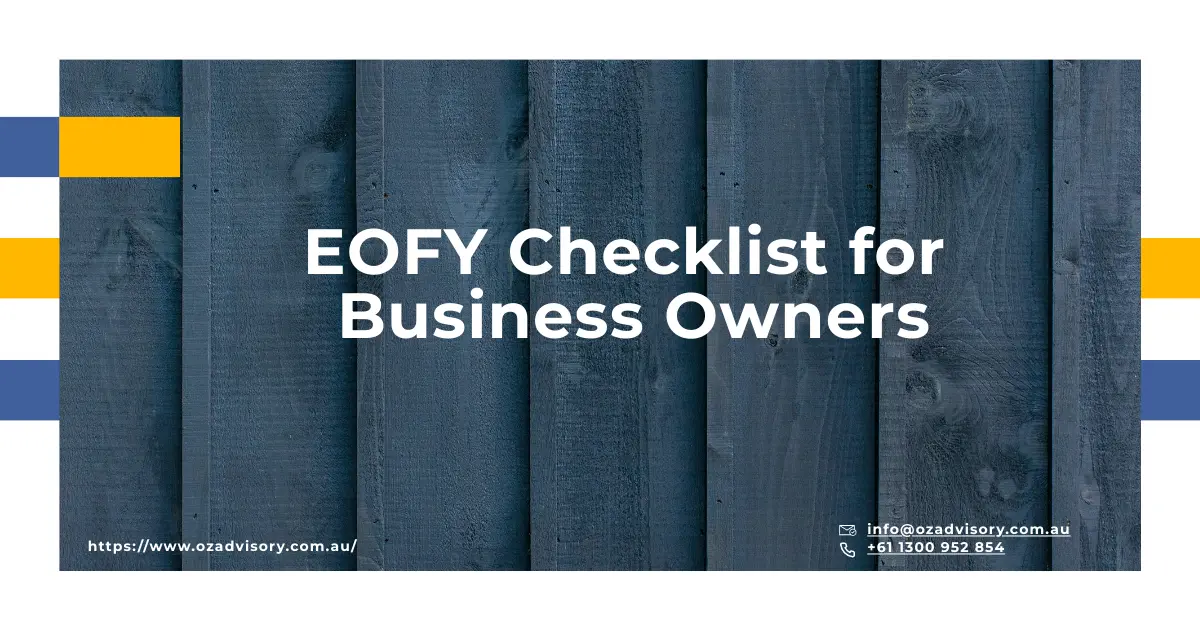 The EOFY isn’t just about ticking boxes—it’s a chance to maximise deductions, ensure compliance, and set your business up for success in the new financial year.
The EOFY isn’t just about ticking boxes—it’s a chance to maximise deductions, ensure compliance, and set your business up for success in the new financial year.
📌 1. Financial Reporting & Compliance
- Prepare your Profit & Loss Statement (income vs. expenses)
- Conduct a stocktake (if applicable)
- Summarise debtors and creditors
- Collate records of asset purchases or improvements
- Complete and lodge:
- Income Tax Return
- PAYG withholding
- Fringe Benefits Tax (FBT)
- Goods and Services Tax (GST)
- Ensure superannuation obligations are met
- Digitise and back up all paper records
💸 2. Maximise Deductions
- Claim eligible business expenses:
- Website setup
- Motor vehicle and travel expenses
- Home office costs
- Tools, machinery, and computers
- Write off bad debts or obsolete assets before June 30
- Ensure you have supporting records for all deductions
🧾 3. Use Tax Concessions
- Explore available small business tax concessions
- Check eligibility for instant asset write-off or simplified depreciation
- Consult your accountant to ensure you’re not missing out
👨💼 4. Work With Trusted Professionals
- Verify your tax agent is registered with the Tax Practitioners Board (TPB)
- Use the ATO’s myDeductions tool (especially for sole traders)
- Subscribe to the ATO Small Business Newsroom for updates
🔍 5. Review & Plan Ahead
- Review this year’s financial performance—did you meet your goals?
- Update your business and marketing plans
- Consider if your business structure still suits your growth
- Review and update your insurance coverage
- Plan for cash flow improvements and new opportunities
⚠️ 6. Stay Secure
- Be alert to EOFY scams (e.g., fake tax refunds or tax debt threats)
- Educate your team on cybersecurity best practices
📅 7. Set Up for the New Financial Year
- Set clear goals and KPIs
- Schedule key lodgement and payment dates
- Reassess your systems, staffing, and strategy